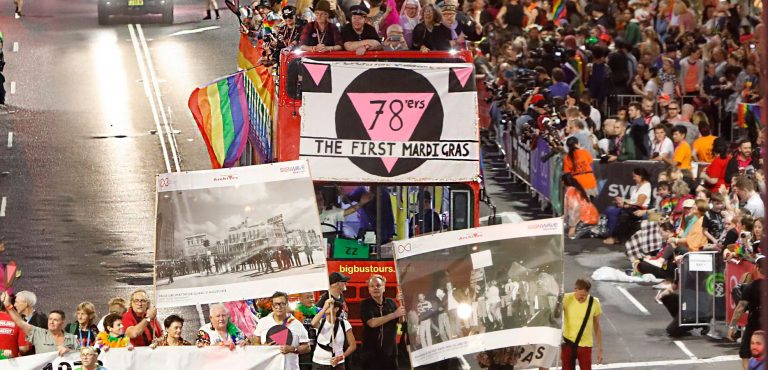
Mardi Gras AGM: We Asked The Mardi Gras Candidates Everything You Want To Know

Sydney Gay and Lesbian Mardi Gras is heading into one of its most pivotal moments in recent years, with a new slate of candidates currently campaigning for the title of Director ahead of the Annual General Meeting (AGM).
With the AGM set for 29 November, Mardi Gras members are now weighing up big questions about the festival’s future — questions that have been echoing loudly across our comment sections, DMs, and community conversations for months.
So, for this election, we wanted to do things differently. Instead of guessing what matters most to our audience and the wider LGBTQIA+ community, we went straight to the source: you. The questions we put to every candidate in our Q&A were shaped by the concerns, confusions, passions, curiosities, and questions we’ve seen prominently in comment threads across Star Observer’s social media pages. This means these questions come from readers of every demographic, identity, and political alignment — a true cross-section of the community Mardi Gras exists to serve.
And it matters, because this year’s candidates sit across two distinct and outspoken factions: Protect Mardi Gras and Pride in Protest. Their visions for Mardi Gras are significantly different, across issues including (but not limited to) programming, the balance of protest and party, police marching in the parade, governance, sponsorships, and much more.
In such a highly charged moment — and with the AGM fast approaching — we’ve asked every candidate the same core questions, giving you the chance to see where they stand, in their own words.
This Q&A is your guide to understanding the people who want to shape Mardi Gras’ next chapter, and the values they’d like to bring to the role.
Jarrod Lomas (he/him)
Member #: 23279

Supporting Statement
As we approach the 50th anniversary of the Sydney Gay and Lesbian Mardi Gras, we’re at a crossroads. Rising costs, operational pressures and political distractions are putting the future of our festival and the unity of our community at risk. It’s time to get back to what matters.
I bring a decade of experience across government, business and community, leading operations, communications and stakeholder engagement that deliver real outcomes. As President of the Pride Business Association (NSW), I have championed initiatives that create opportunity, visibility and connection for LGBTQIA+ people across Sydney and beyond. I also serve on the Board of the LGBTQ Domestic Violence Awareness Foundation and volunteer with organisations across our community.
I turn up and show up because progress doesn’t just happen during one festival. It is built 365 days a year through inclusion, empowerment and collaboration.
I will bring capability, transparency and a relentless focus on community to the Board. Together, we can make Mardi Gras stronger, sustainable and importantly, truly for everyone. Delivering Progress, Together.
Q&A
Q: In your opinion, has Mardi Gras become too reliant on corporate money?
Corporate partnerships and sponsorships are important for the sustainability of the festival and keeping costs down for all of us, but it needs to evolve. Right now, it feels too transactional. I have a plan to reimagine partnerships and sponsorships so corporates are not just branding the festival, rather they fund and lift up community year-round,
Q: How do you feel about Police marching in uniform?
I support police participation in the parade, marching in or out of uniforms, without firearms. Recognising ongoing relationship-building while acknowledging unfinished hurt – the history is real and harm remains – there’s still a way to go. Trust must be earned through accountability, cultural change and action, not symbolism alone. We can keep moving forward without ignoring our history.
Q: How do you feel about Sydney Gay & Lesbian Mardi Gras changing its name for inclusivity reasons?
I support a name that reflects our diverse community today. Any change must come through genuine consultation and community leadership, not corporate branding logic. It should honour our history while strengthening belonging. Inclusivity should feel owned from within, not imposed from above.
Q: How do you feel about politicians from parties with anti-LGBTQIA+ policies marching in the parade — should they be allowed or excluded?
Mardi Gras should be a magnet for change. If politicians want to march and join us, then they should be welcomed. Support is demonstrated in voting records, advocacy and policy reform. Accountability for their actions comes around every few years at the ballot box.
Q: Some people have concerns Mardi Gras has shifted too far from protest to just entertainment/a celebration, while others believe protest is being prioritised too much and it should solely be a celebration — what are your thoughts?
Mardi Gras has always been both protest and celebration. We don’t need to choose. Our power is pride and activism held together.
Q: Should community groups get priority access to parade slots over brands and sponsors?
Yes. We need to reimagine the way corporates and sponsors engage with our community and the parade. Lifting up and platforming LGBTQIA+ organisations and communities should be the priority of all in the parade.
Q: Should members have a binding vote on major sponsorships?
No. Members should absolutely be meaningfully consulted and informed, but a binding vote would limit the board’s ability to negotiate responsibly and strategically. Strong governance requires transparency, trust and clarity of roles. We fix the process by improving engagement and director voting, not by making every decision a referendum.
Q: In your opinion, should Mardi Gras be a business entity or a community organisation?
Mardi Gras should be a community organisation with strong business capability. We need professional governance and financial sustainability, but the purpose must always be community first. The business supports the movement, not the other way around.
Q: Do you believe board candidates should have to disclose tourism, sponsor, or lobbying ties before election?
There should be appropriate disclosure so members can make informed choices. Transparency builds trust. It doesn’t need to be punitive or politicised, but clarity helps ensure accountability and confidence in decision-making.
Q: Do you think there should be a public holiday for Mardi Gras?
Sure, why not! A public holiday would recognise a movement that has shaped culture and law in Australia. But I wouldn’t say it’s a high priority right now. Our first focus as a board should be strengthening the festival, the organisation, and our year-round community impact.
Q: How do you feel about the financial sustainability of Mardi Gras – should this be prioritised?
Yes. Without financial sustainability, everything else becomes fragile. But sustainability must come from diverse income streams and meaningful partnerships, not increasing commercialisation at the expense of community. Strong, stable foundations allow us to plan, create and grow.
Q: Do you think sponsorship deals should require investment in year-round local LGBTQIA+ community programs/organisations?
Yes. Sponsorship should be reimagined to directly invest in community outcomes. If businesses want the visibility and cultural value that Mardi Gras offers, they should contribute to the wellbeing, creativity and safety of our community all year. Mardi Gras should be a connector, a builder and an enabler.
Pride in Protest
The candidates running on the Pride in Protest (PiP) ticket — Luna Choo, Alyss Cachia, Miles Carter, and Tala Ka — have chosen to answer the Q&A together, reasoning that they are ‘a single ticket with a unified platform’. The candidate that answered each question is listed in front of each answer.
Supporting Statements
Luna Choo (she/they)
Member #: 29028421

My name’s Luna Choo 朱露娜, and I’m a trans asylum seeker. I’m an activist in Pride in Protest and a queer organiser for trans justice and a free Palestine.
I’m running for the board representing local queers who, amidst anti-trans violence and Palestinian genocide, are fighting for a world free of transphobic bigotry and racism.
I’ve found the power of communities in parties and on the streets. With the queer community I’ve campaigned for passing the Equality Bill in full, publicly spoke against the detention of other trans refugees, and organised queer contingents to pro-Palestine protests.
Last Mardi Gras I was threatened with deportation over Palestine solidarity. With the union movement and other activists, the queer community successfully fought against my deportation.
These were the same queers whom I’ve worked with, and will always work with, to demand our equal rights and the liberation of trans youth, queer Arabs, everyone.
Our collective liberation means we:
- cut ties with genocide,
- end police violence, and
- demand full equality – no exceptions!
If you support our fight for a just future for all queers, I recommend you vote for:
- Luna Choo
- Alyss Cachia
- Miles Carter
- Tala Ka
Alyss Cachia (she/they)
Member #: 29029067

I’m Alyss Cachia, a proud Trans Woman and queer activist, fighting for a Mardi Gras we’re all proud of and can see ourselves in, not just a stream of corporate advertisements.
In my role as the Queer Officer of the University of New South Wales I personally campaigned for UNSW’s return to the parade, and for this platform to be more than just an ad. In this role and as a member of Pride in Protest I have campaigned for queer rights including the fight for Equality in Full. Having gone through the religious school system, it was shocking to see the gutting of discrimination law reform as the Equality Bill was passed in parts.
I believe in a left-wing vision of Mardi Gras through demanding equality in FULL, opposing police violence and divesting from genocide. I support the inclusion of victims of police, religious and colonial violence.
We cannot stand to continue this legacy of violence and instead must champion our opposition to this Violence.
I recommend that Mardi Gras members vote for Pride in Protest candidates in order:
- Luna Choo
- Alyss Cachia
- Miles Carter
- Tala Ka
Miles Carter (he/she)
Member #: 26522

Hi, I’m Miles Carter. I’m a passionate gender non-conforming person born and raised on Bidjigal Land, and an aspiring musician undertaking a music composition diploma at TAFE.
For the past year, I’ve been visiting Villawood immigration detention and doing my best to support the trans women who have been detained, including Giigii who remains. While we can celebrate that many of our sisters inside have been successfully released from immigration detention, the fight continues.
I believe Mardi Gras has an important ongoing role in confronting systemic oppression, especially of First Nations mob, who resist colonial occupation and incarceration. ‘Stop Police Attacks – On Gays, Women And Blaks’ remains as relevant as it did in 1978.
Mardi Gras’ failure to publicly commit to the BDS movement needs to change. We must disavow pinkwashing and disrupt the war profiteering of Israeli apartheid. This year’s Bondi Beach Party is being produced by promoter company, Fuzzy, owned by KKR, with major investments in the illegal occupation of Palestinian land; we need to be clear there’s no Pride in genocide!
I hope you’ll join me in supporting the following candidates:
- Luna Choo
- Alyss Cachia
- Miles Carter
- Tala Ka
Tala Ka (he/she/they – out of drag; she/her – in drag)
Member #: 29029140

I am a Filipino Drag performer using my drag in solidarity and to uplift LGBTQIA+ and POC Communities.
Thanks to the 1978 Mardi Gras Parade Protest, and the work thereafter of the 78ers and queer activists, I am privileged to openly both perform drag, and be queer. Due to the hard fought for protections for queer people being under attack globally, and the ongoing genocide of First Nations people in Palestine and here in so-called Australia, I am running to see an empowered Mardi Gras parade. A Mardi Gras that takes back, and utilises its strength as the global symbol of queer liberation, resistance, and protection.
As a member of Pride in Protest and City of Sydney for Palestine, it is my love for the LGBTQIA+ community and culture in addition to my lived experiences as a queer person of colour, that makes me committed to a Mardi Gras that stands up to institutionalised violence, discrimination, and Pinkwashing, and uses its global status to take a stand against genocide.
I recommend that Mardi Gras members vote for Pride in Protest candidates in the following order:
1. Luna Choo
2. Alyss Cachia
3. Miles Carter
4. Tala Ka
Q&A
Q: In your opinion, has Mardi Gras become too reliant on corporate money?
A: (Miles) Yes. Corporate sponsors are fairweather friends, often have unethical business practices, ultimately replacing our community’s own artistry and creativity with ugly logos for floats. PiP has put up a motion that says the board should instead advocate for full public funding – this would mean cutting ties with unethical sponsors.
Q: How do you feel about Police marching in uniform?
A: (Luna) We believe that the NSW Police as an institution have no place within Mardi Gras. Deaths in custody, illegal strip searches, murdering people while responding to mental health calls – the list is too long for this short answer. The Police marching in Mardi Gras will not reform their institution.
Q: How do you feel about Sydney Gay & Lesbian Mardi Gras changing its name for inclusivity reasons?
A: (Alyss) It should change. It’s time we had a name that can represent all in the LGBTQIA+ community. Pride in Protest is the only group consistently running trans people for Mardi Gras Board, like we are this year, and trans people are just one group currently not included by the name.
Q: How do you feel about politicians from parties with anti-LGBTQIA+ policies marching in the parade – should they be allowed or excluded?
A: (Alyss) If politicians expect to be part of Mardi Gras, they need to legislate equality in full – not give piecemeal reform, stonewall change, then use Mardi Gras as a photo-op. This year, we’ve put up a motion to say that pollies are not welcome without legislating full Anti Discrimination protections.
Q: Some people have concerns Mardi Gras has shifted too far from protest to just entertainment/a celebration, while others believe protest is being prioritised too much and it should solely be a celebration — what are your thoughts?
A: (Luna) We all love a good party – but it’s problematic when they are co-opted by powerful interests. We believe that interests like the NSW Police, queerphobic politicians, and companies invested in the occupation of Palestine seek to use Mardi Gras to hide the harm they cause us or our allies.
Q: Should community groups get priority access over brands/sponsors?
A: (Tala) Yes. We believe that there should be no corporate-branded floats. Not only do they take up space, they also are contracted to be built by Mardi Gras, reducing workshop space and time for our community. But also, why limit the number of community floats at all – let them all march!
Q: Should members have a binding vote on major sponsors?
A: (Luna) Pride in Protest is proud to have used the AGM as a forum to publicly debate whether sponsors who act badly should be accepted. This should always continue – like our motion for Mardi Gras to officially decline working with Fuzzy, an events company whose parent company has Zionist investments.
Q: In your opinion, should Mardi Gras be a business entity or a community organisation?
A: (Tala) Pride in Protest has always put community first – that’s what Mardi Gras should be, by the community for the community. When Mardi Gras prioritises this, it means Mardi Gras will be a real place for change that demands equality in full, an end to police violence, and divestment from genocide.
Q: Do you believe candidates should disclose tourism, sponsors, or lobbying ties before election?
A: (Alyss) Candidates who have material conflicts of interest should declare them. Some Mardi Gras board members, brazenly, give ‘jobs for mates’ or land themselves high-paying roles in the organisation. Regarding tourism, candidates who have toured Israel, paid for by the Zionist government, should disclose.
Q: Do you think there should be a public holiday for Mardi Gras?
A: (Miles) Yes. We put a motion in support of this last year – it got voted down by those that now support “Protect Mardi Gras”. A public holiday would pay LGBTQIA+ and allied bar workers and others more on the night, and give us all a gay day of recovery on Monday.
Q: How do you feel about the financial sustainability of Mardi Gras – should this be prioritised?
A: (Miles) Once again, we think that 100% public funding will ensure Mardi Gras keeps on going. Many corporate sponsors are from the US; the Trump effect is a genuine risk to our communities. We are bringing a motion to say we reject any sponsors that may be funding Trump’s anti-LGBTQIA+ agenda.
Q: Do you think sponsorship deals should need year round commitment?
A: (Tala) We don’t think that any token amount of commitment or funding is acceptable if a sponsor is engaged in unethical business. Mardi Gras shouldn’t take dirty money – for example, any money with links to Zionist interests, or to the Trump regime. That’s what we will be bringing to the AGM.
Kyriakos Gold (he/they)
Member #: 20989

Supporting Statement
First appointed to the SGLMG Board through a merit-based process and later elected by members, I’ve helped steer the organisation through one of the most complex periods in its history, rebuilding trust, strengthening governance, and restoring accountability. I believe our community deserves transparency and courage from its board, not silence or spin.
I bring lived experience as a culturally and linguistically diverse, Autistic, nonbinary person, and more than two decades of connection to SGLMG as a volunteer, researcher and Director.
My professional background spans governance, law, business, media, and community engagement. I’ve produced major public events such as Victoria’s Multicultural Festival, advised governments, and led projects that unite community and institutions around shared purpose.
Awarded by NSW Parliament, inducted in the Victorian Multicultural Honour Roll, twice a Telstra Best of Business top5 finalist, I bring both lived experience and proven leadership to SGLMG. As an Australian lawyer (non-practising) with a Juris Doctor, Executive MBA, and PhD research focused on social impact, including SGLMG as a case study, I lead with evidence, ethics, and conviction. I’m running again to complete the reform work we started and ensure SGLMG remains fearless, transparent, and representative of the full diversity of our community.
Q&A
[Questions have been slightly adjusted — while keeping the same intent — solely for accessibility]
Q: Has Mardi Gras become too reliant on corporate money?
A: This question is really asking what kind of Mardi Gras we want. I want a festival that is big, visible and safe. Community must come first, but values-aligned partners help sustain that scale. Support should strengthen our independence and ethics, not define us.
Q: How do you feel about police marching in uniform?
No queer person should be pushed out of their own community, our parade must remain inclusive. We acknowledge the harm policing causes and still recognise that banning LGBTQIA+ police will not fix it. Safety comes from trauma-informed practice, accountability and proper consultation. Inclusion must be based on good faith, not erasure.
Q: What is your view on changing the organisation’s name?
We should not erase the words Gay and Lesbian. That is our foundation, our history. We can expand the narrative, including for example Pride on the Parade, or more as we evolve. A name change does not fix disconnection. Doing the work does. Change must come through genuine consultation, not surveys or shortcuts.
Q: Should politicians from anti-LGBTQIA+ parties march?
Assess individuals on their conduct, record and integrity, not just their party label. Participation must be in good faith and accountable. Blanket bans do not shift politics. Visibility, scrutiny and community expectations do.
Q: Is Mardi Gras too much protest or too much celebration?
It has always been both. Protest without joy exhausts us. Celebration without politics loses its purpose. Holding both at once is what has made Mardi Gras effective for decades.
Q: Should community groups get priority over sponsors?
Community should be prioritised, but the picture is more complex. Some sponsor floats are entirely queer-led. Financial capacity does not make someone less community. What matters is transparent process, appropriate weighting and ensuring that community voices lead.
Q: Should members have a binding vote on major sponsorships?
No. Mardi Gras must comply with Australian law, and directors cannot delegate their legal duties. Members should be consulted meaningfully, but binding votes on contracts would undermine governance. Transparency builds trust. Breaking structure does not.
Q: Should Mardi Gras operate as a business entity or community organisation?
It must be both. The legal structure protects members. The community purpose gives us meaning. A modernised constitution can protect both professionalism and community identity.
Q: Should board candidates disclose tourism, sponsor or lobbying ties?
Yes. Transparency and disclosure are basic governance requirements. They reduce risk, prevent conflicts and help members understand how candidates might approach decisions.
Q: Should Mardi Gras have a public holiday?
Recognition is always welcome, but we need to be realistic. A public holiday means little if fundamental issues remain unresolved. It should not distract from priorities like safety, inclusion and year-round programs. Explore it, but not at the expense of more urgent work.
Q: Should financial sustainability be prioritised?
Without financial sustainability, there is no Mardi Gras to protect. But sustainability only works when paired with ethics, inclusion and safety. These are not competing priorities. They reinforce each other and strengthen the organisation for the long term.
Q: Should sponsors contribute to year-round LGBTQIA+ programs?
Where appropriate, yes. Partnerships should support community beyond one night in February. Each agreement should be assessed on ethics, alignment and impact. An always-on organisation needs partners who support work across the year, not just the Parade.
Savanna Peake (she/her)
Member #: 28914

Supporting Statement
I’m standing for the Sydney Gay and Lesbian Mardi Gras Board because our community deserves leadership that reflects who we are. I’m a proud lesbian woman who knows what it means to fight to be seen, heard and a woman who knows how to get things done. I was deeply concerned last year at the AGM when no women were elected to the Board, and decided if I wanted that to change, I had to be willing to put myself forward to stand up, represent and provide a voice for those currently not feeling heard by the current representation on the Board – the women of Mardi Gras.
In 2025, I stood as Labor’s candidate for Wentworth because I believe women and our LGBTIQA+ community deserve a seat at every table, in our Parliament and on the Mardi Gras Board. I’ve spent my career standing up for equality and inclusion, from championing the NSW Equality Bill in 2024 to years on the ground running Mardi Gras parade floats as well as in my work as a public educator empowering young LGBTIQA+ students to live their lives authentically without fear.
I bring experience in government, policy and governance, through Board roles with the Pride Business Association, Women’s Legal Service NSW, QTOPIA and as a Convenor of Rainbow Labor NSW. As a public educator, union organiser and activist, I’ve always fought to empower people to live authentically and to make their voices count and that’s exactly what I’ll bring to the Mardi Gras Board. Skill, experience and dedication to represent you and to work collaboratively to make Mardi Gras the best it possibly can be, in unity.
Mardi Gras was built by activists, our cherished 78ers who stood up, fought for us and worked together to make Mardi Gras what it is today.
I want to honour that legacy by keeping Mardi Gras strong, united and inclusive. I’m running with Protect Mardi Gras because our Board must reflect our full diversity — more women, more lesbians and more diversity.
Q&A
Q: In your opinion, has Mardi Gras become too reliant on corporate money?
A: Community comes first. But strong, values-aligned partnerships help keep Mardi Gras safe, visible, and world-class. The goal should always be to work with partners who genuinely support and strengthen our community, not those who simply want to borrow its shine.
Q: How do you feel about Police marching in uniform?
A: We have to acknowledge the real hurt caused by police actions in the past and keep pushing for reform. But we also know that LGBTQIA+ police officers marching in good faith are part of that change. Whether they wear uniforms or not should be their choice. Real inclusion means opening doors, not closing them.
Q: How do you feel about Sydney Gay & Lesbian Mardi Gras changing its name for inclusivity reasons?
A: Language evolves, and so should we. Any change should reflect the full diversity of our community while keeping the unity and history that make Mardi Gras special. It’s a conversation worth having, carefully, respectfully, and together.
Q: How do you feel about politicians from parties with anti-LGBTQIA+ policies marching in the parade – should they be allowed or excluded?
A: I believe in judging people by their actions, not just their affiliations. If someone is showing up in good faith to listen, learn, and support our community, that’s an opportunity for engagement and progress. Shutting people out rarely changes minds. Visibility and dialogue do.
Q: Some people have concerns Mardi Gras has shifted too far from protest to just entertainment/a celebration, while others believe protest is being prioritised too much and it should solely be a celebration — what are your thoughts?
A: It’s always been both, protest and pride, politics and celebration. Joy itself is political for our community. We can hold space for both the party and the purpose. That balance is what gives Mardi Gras its power.
Q: Should community groups get priority access over brands/sponsors?
A: Yes, community groups should always come first. Sponsors can add value, but not at the expense of community voices. It’s a tough balance every year, and we don’t always get it right, but the goal should always be inclusivity and representation.
Q: Should members have a binding vote on major sponsors?
A: Members should absolutely be informed and consulted on big partnerships. Transparency builds trust. But the board also needs the ability to negotiate responsibly. That’s part of good governance and sustainability.
Q: In your opinion, should Mardi Gras be a business entity or a community organisation?
A: It has to be both. We need professional standards to protect our members and ensure accountability, but Mardi Gras must always remain a community organisation at heart. We run it sustainably so the mission endures, not the other way around.
Q: Do you believe candidates should disclose tourism, sponsors, or lobbying ties before election?
A: Transparency is always a good thing. It’s how you build trust and make better decisions.
Q: Do you think there should be a public holiday for Mardi Gras?
A: Who doesn’t love a public holiday? But realistically, there are many worthy causes competing for recognition. If a Mardi Gras holiday helped strengthen visibility, safety, and understanding across the country, I’d support exploring it. But I’d also want us focused on reforms that make everyday life better for LGBTQIA+ Australians.
Q: How do you feel about the financial sustainability of Mardi Gras – should this be prioritised?
A: Financial sustainability is vital, but it should never come at the expense of inclusion and unity. Both are non-negotiable.
Q: Do you think sponsorship deals should require investment in year-round local LGBTQIA+ community programs/organisations?
A: Partnerships should be considered case by case, with strong weighting given to how much they benefit our community, our power, and our visibility.
Shane Sturgiss (he/him)
Member#: 25268

In place of answering the full Q&A format, Sturgiss chose to deliver his answers to key points.
Supporting Statement
I am a proud gay Aboriginal cis gendered man, with family connections to Ngarigo and Gundungurra lands in Carwoola and Queanbeyan NSW. I have been an active member of Sydney Gay and Lesbian Mardi gras since 2020. My lived experiences as an Aboriginal member of the LGBTQIASB+ community have shaped my commitment to advocacy, inclusion, and creating safe spaces where diverse voices are celebrated.
Having held positions as a Senior Executive within the LGBTQIASB+ sector, I have either been responsible for, assisted in or experienced the following elements of community engagement:
- Creation of First Nations Circle at Fair Day
- Production of First Nations elements of the Mardi gras festival in 2025
- Creation of the First Nations LGBTQIASB+ health and wellness weekend camp
- Creation and facilitation of the First Nations Caucus and Global First Nations Caucus for the 2023 World Pride Human Rights Conference.
Throughout my personal and professional life, I have actively contributed to initiatives that promote equity and visibility for marginalised communities. I believe my background, cultural heritage, governance knowledge and strategic planning experiences would bring valuable perspectives to the Board, helping to further the Mardi Gras legacy of empowerment, celebration, and social change.
Answers
As Sydney Gay and Lesbian Mardi Gras approaches its 50th anniversary, it is essential for everyone involved with SGLMG to consider the event’s history, legacy, and future. The organisation’s brand is built on this history, and maintaining its integrity supports the ongoing legacy of those who paved the way.
The annual parade highlights community diversity and promotes inclusion, equity, and acceptance—values that should extend year-round. Participation in the parade should be reserved for LGBTQIASB+ individuals, allies, and genuine supporters, not based solely on financial backing or corporate interests.
Decisions about corporate sponsorships should remain with the SGLMG board and management, ensuring all sponsors align with organisational values and history amid the common reliance on corporate funding in the non-profit sector.
SGLMG is not a platform for government or corporate self-promotion. The focus should remain on protest and identity, truth telling and acknowledging the pain of our past and what suffering continues today, rather than using the event for external gain or visibility only when convenient. I have seen this occur with our Cultural identity, our First Nations people are asked to perform ceremony, when it is suited and for tourism benefit or Global identity purposes but at other times, there is no acceptance. Highlighting the intent of SGLMG as a right of protest should be the foremost purpose.
Kathy Pavlich (she/her)
Member #: 23378

Kathy Pavlich declined to take part in Star Observer’s Q&A.
Star Observer has included Pavlich’s official supporting statement, to make absolute best efforts in ensuring our readers are as informed as possible about all candidates in this election.
Supporting statement
Elected to the Board in 2023, I served as Co-Chair during the most recent Mardi Gras season. With over 30 years of involvement across all aspects of the organisation, I have worked to strengthen financial sustainability, deepen community engagement, and reinforce governance and operational foundations.
As an older lesbian woman who has worked and volunteered with Mardi Gras since 1989, I am passionate about contributing to the organisation’s future direction and upcoming 50th anniversary. My long community involvement has fostered strong connections that will support inclusive and forward-looking discussions about our future.
Professionally, I am a respected security, risk management, and governance specialist, bringing a deep understanding of safety and risk in the context of major events.
I strongly support modernising our Constitution while maintaining connection to our history and community roots. I believe my experience and relationships across our community will help the Board navigate upcoming discussions around constitutional and potential name Changes.
My decades of event, community, and governance experience have given me broad insight into what sustains successful, inclusive organisations. I am eager to continue sharing my skills and passion to help guide Mardi Gras into its next exciting chapter.
The Mardi Gras Annual General Meeting will be held on 29 November, 2025. Learn more here.
EDITOR NOTE: A previous version of this story featured the wrong set of answers for Savanna Peake. This has been updated as of 5:47pm. Star Observer apologises for this oversight.
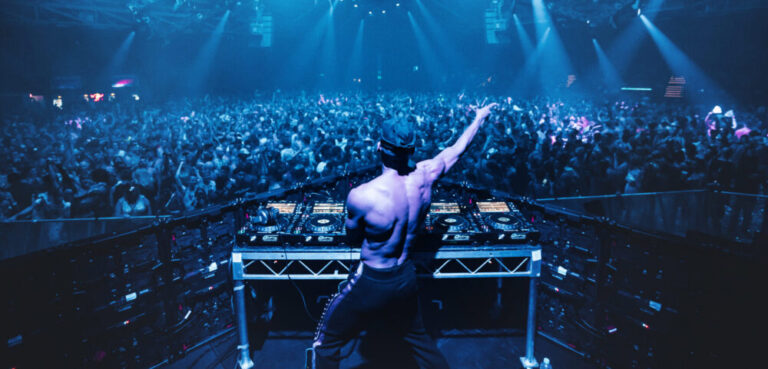
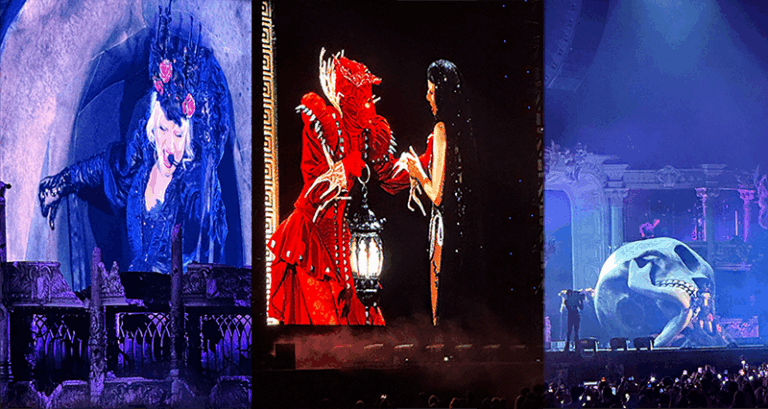
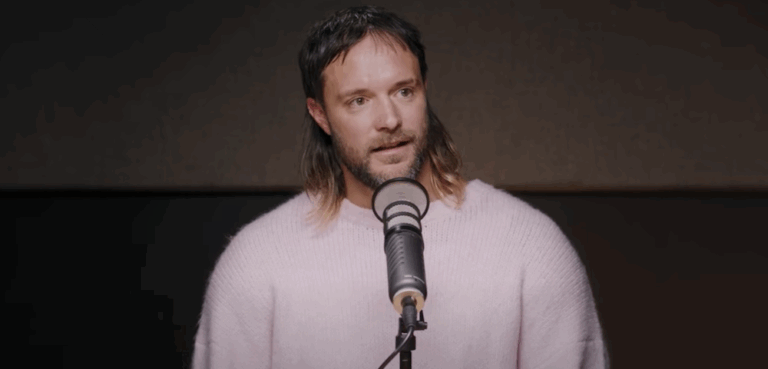
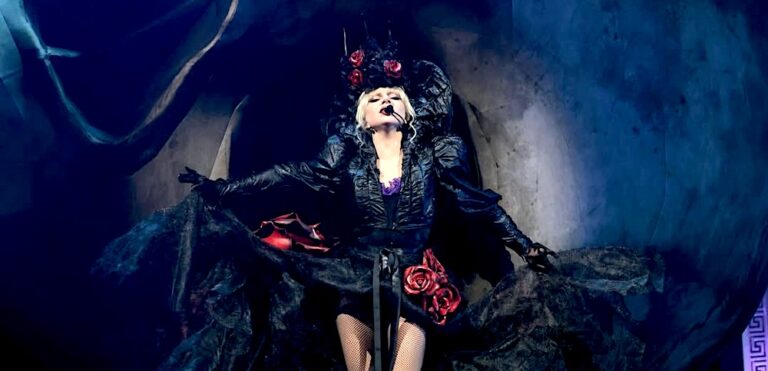
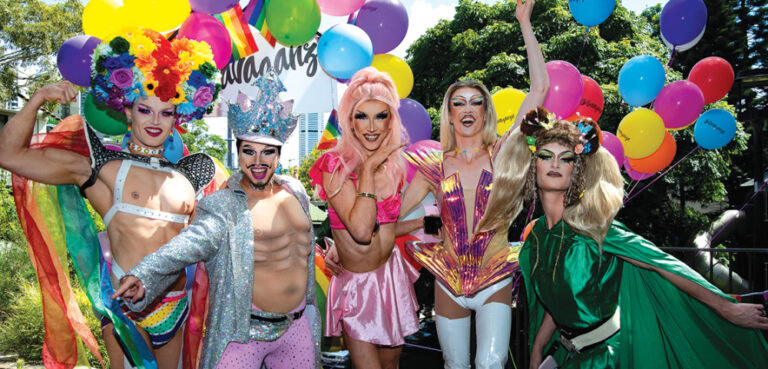
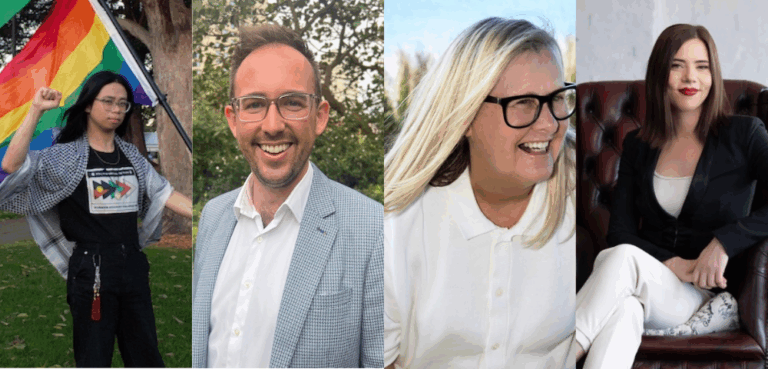
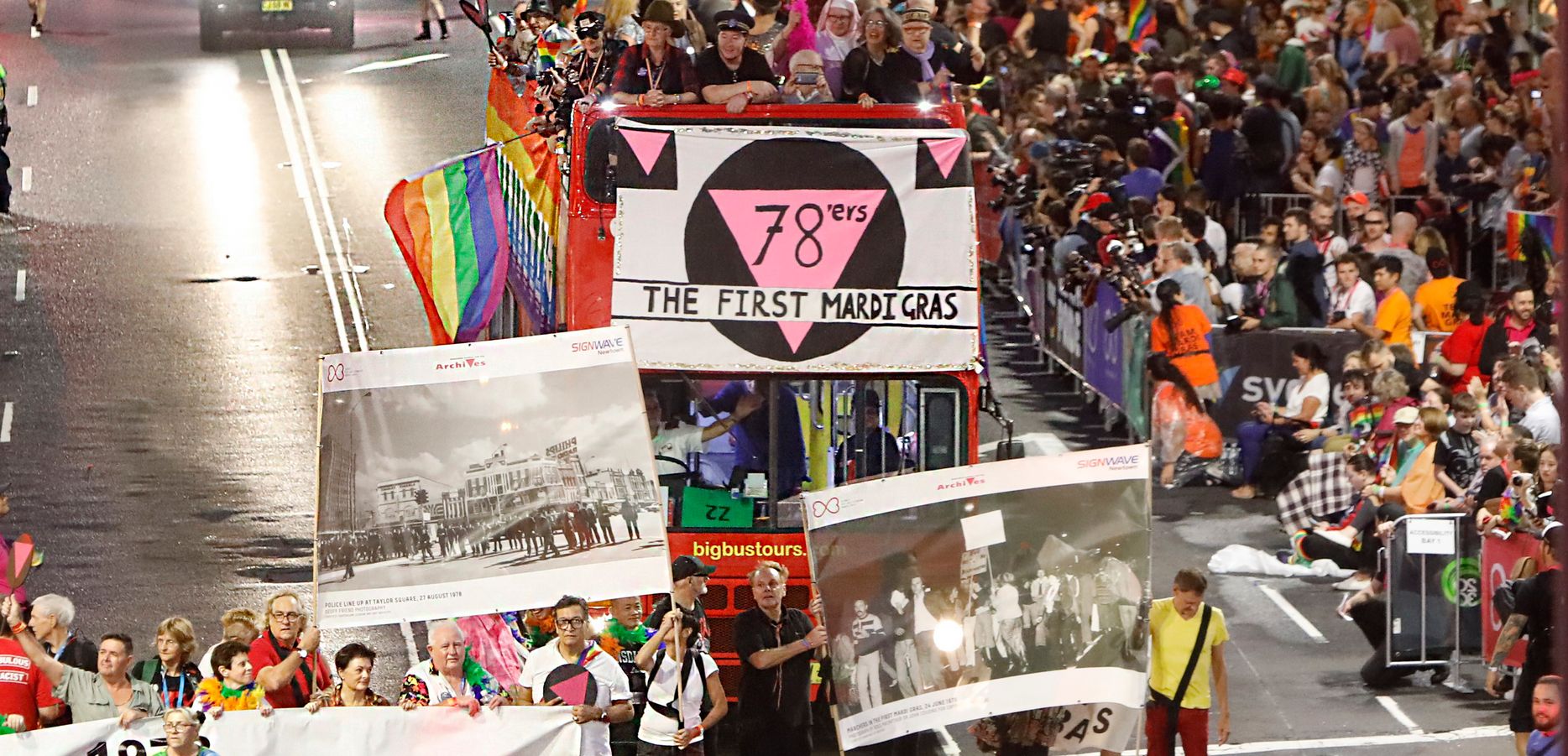
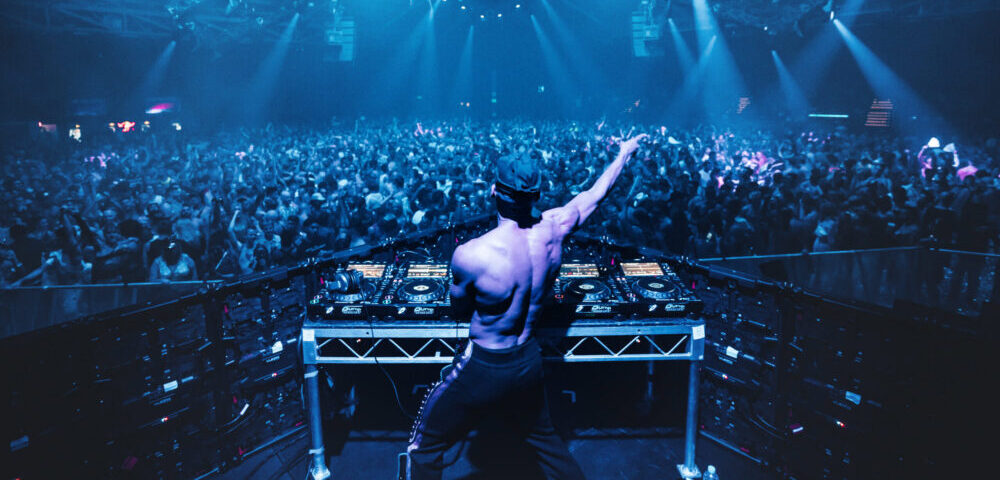
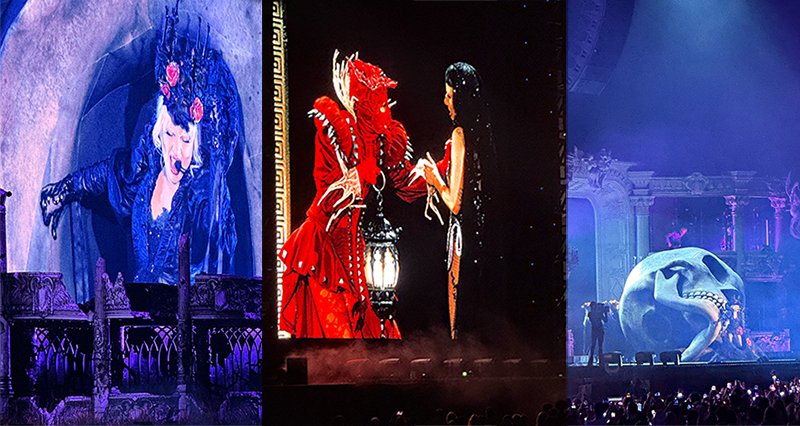
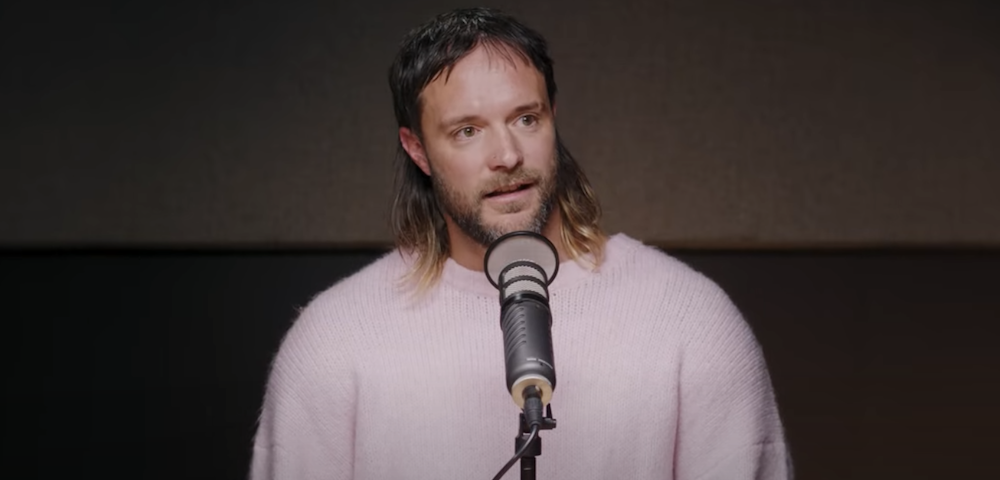
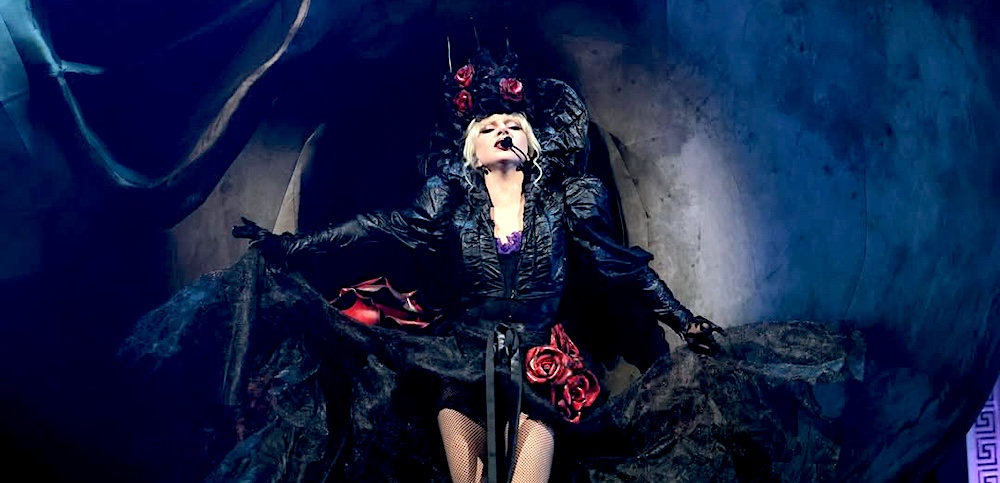
The Pride in Protest candidates represent everything that is wrong with this platform. You’ve already lost so many sane gay and lesbian people. These activists with their narrow and intolerant agenda don’t represent us and we’re f’ing sick of it. Most of the LGB community these days have more in common with the straight community than them. Get rid of them or Mardi Gras will be just another angry activist group that most of us (gay and straight) don’t want to be associated with.